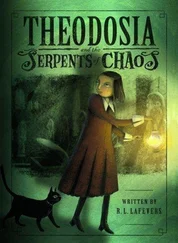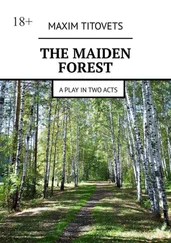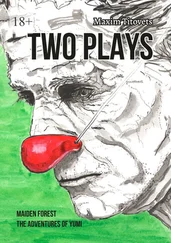In the surge and thrust of angry limbs, at first he could not find the sound’s source. When the screams began, he saw: broken glass rained from skyscrapers and pyramids all around. Shattered panes fell from shaking towers. Transparent knife blades tumbled, sparked by the dying sun. Striking, they severed flesh. Screams cut short before others took their place. Bodies pressed against Balam from all sides: ten thousand people simultaneously forced themselves toward the center of Sansilva Boulevard, away from the glass and blood.
This was not Wardens’ work. They would not break the buildings they were sworn to defend. Real estate was sacred to them. Above, their Couatl wheeled, wings beating rapid, roaring with jaws unhinged by panic.
Couatl feared nothing—not fire, not death, not the shifting earth. No mere earthquake would make them cry. But if not Wardens, and not an earthquake, what was happening?
The groans and cries changed tempo and tenor, rising, gaping, higher. Hot wind blew across Balam’s face, and the crowd convulsed again, pressing him not toward the center of the road this time but forward, toward the lethal blue border of the Canter’s Shell.
He turned, straining against the tide, and saw fire.
* * *
Asphalt glowed like broken coals. Mal flailed in flame, in hunger. She strained against the weight of stony sleep. Air melted to plasma. Below, demonstrators fled, screaming.
In the old days, the rooftops had boiled with spectators, risking their sanity to see.
The fleeing protesters thought the quakes, the flames, were the Craftsmen’s vengeance.
They would understand soon.
The world held mysteries more worthy of their fear than human Craft.
Tar bulged, rippled, burst. A forked fiery tongue spouted from the molten flow, and retreated into a blunt mouth a hundred yards across. Two eyes of white flame flared from an immense arrow-shaped face. Aquel bared fangs the size of trees. A thousand years of sacrifices stared out from the diamonds that lined her gullet, Quechal faces trapped in agony. She roared a volcano roar.
Her sister too broke free, and they rose together, sinewy, strong, hungry. They cried doom.
* * *
The city shook. Elders trembled as nightmares wormed from the rotten timbers of their memory. Madmen shouted prayers in High Quechal, though they did not understand the words spilling from their lips. In hospital coma wards, patients silent for years opened their mouths to speak:
“Blessed Be They.”
In the Skittersill a burning building collapsed around a three-year-old girl and left her unharmed. A Warden’s mount plummeted from the sky, dead; the Warden’s partner swooped to save him from a bloody landing.
From Fisherman’s Vale to Monicola, from the Pax Coast Highway to Stonewood, Tzimet exploded into steam. In the fountain of the Monicola Hotel, the beast of water and black ice shattered. Insect-sized demons popped like blisters. They fled the approach of greater monsters.
* * *
In Balam’s childhood when his grandmother lay drunk on corn beer on cool dry winter afternoons she had told him tales of old gods and heroes. Beyond these he knew no sacred signs, no holy chants beyond those repeated before an ullamal game. But he recognized the cobra-hooded coils above Sansilva, the house-sized scales slick as water if water burned, taller than the pyramids, tall enough to eat the sun, or kindle it aflame again with the darting forked lava spouts of their tongues. Shining in every color and none, cored white as alabaster: Aquel and Achal, greater than goddesses, fiercer than demons, the world’s first children.
He almost froze in awe and wonder, and if he had, he would have been lost. The crowd saw, and whatever they understood, whether they recognized the Serpents or thought them Craft-born terrors or demons run loose, they knew to flee. Desperate they stumbled away from the Serpents: down alleys and into swaying buildings, despite the rain of glass. But most ran along the path of least resistance, down Sansilva Boulevard, and their tide carried Balam toward the Canter’s Shell and forever.
Balam pushed against the crowd, with muscles built down decades of cliff running and decades more of teaching runners. A stone statue stood fifty feet upstream, some robed Iskari goddess, a break in the human tide. Fifty feet might as well be miles. He thrust himself into spaces between people, he struck men in the stomachs, he tore free from clawing fingers, and pressed toward the statue.
Heat passed over him, raised rivers of sweat on his arms: the heat of the Serpents’ gaze, or else their distant breath.
His legs ached. A flailing elbow caught him above the eye and tore his skin. Blood ran down his face. He growled, and fought harder, in and down, gripping cobblestones with his feet, desperate not to lose the slim scrape of traction that bound him to the earth and kept him safe from pounding feet and pulsing legs.
Men and women died around him. They fled the Serpents like ants flee the beam of a magnifying glass. Those too slow were crushed, or burned.
The air stank of panic and sour sweat.
Ten feet left. An eternity. He could not cross the distance. He could count his wounds, and weaknesses: a finger broken when a woman he was fighting past shifted left instead of right. Blood in his eyes. A back twisted by too much running, by a youth spent sprinting over rooftops. Forty years of fat.
Damn the crowd. Damn the Wardens for circling above the damage. He might not make it, but for one more moment he would fly.
Six feet. He released his hold on the ground, but rather than let the tide carry him forward he grabbed the shoulders of the men pressed against him and pulled himself up, onto them, over their bodies, through the forest of arms and heads, a cliff runner’s last leap—
Too short. He landed a foot shy of the open space around the fountain; his weight pressed bodies beneath him to the ground, but others surged over him, over them, dragging him back. He roared in frustration, reaching toward that stone Iskari goddess to strangle her promises of victory.
A hand closed around his: a steel grip, slender but implacable, a rock against the tide.
He pulled with strength that could tear stone, and the hand pulled back, and in a tumble he lay panting in the statue’s shadow beside his savior, a woman, not even Quechal: blond hair in tangled braids, a scar on her temple. Her eyes were wide with terror, and she sucked in breath like a horse after a sprint. So did he. He swore, and cursed, and spit.
“Thank you.”
She nodded.
“Balam,” he said, and tapped his chest. He could not raise his hand to offer it to her.
“Sam,” she said. Around them, the world continued to end.
* * *
Mal tossed, spun, caught inside the Serpents.
“Stop,” she said, in High Quechal and then in Low: “Stop.”
The Serpents swayed, brighter than the dying sun. She hovered level with round crystal eyes a hundred feet tall. Heat scored her skin. Sweat ran down her face—altar sweat, the sweat of the bound woman who sees the knife. The Serpents’ scales pinged and hissed and cracked as the air tried and failed to cool them.
They waited for her.
A smile crept across Mal’s face.
The Serpents twitched, and her smile faltered.
The smell of sacrifice rose from the pyramid at 667 Sansilva. The serpents smelled it, and so did she.
Temoc. No other priest remained to make an offering. Alaxic had killed the others, one at a time down the decades, with poison, blade, and Craft. Temoc should have been the last. Somehow, he must have escaped, and reached the altar with a victim.
No matter. She would burn him from his place of power.
Читать дальше











